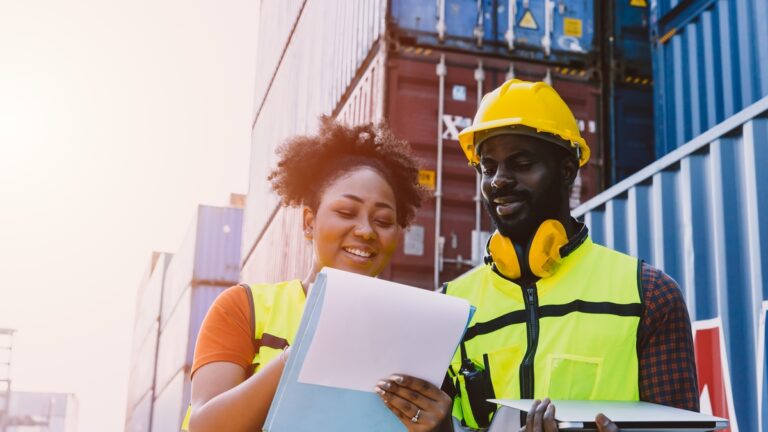In this article, we will discuss the past, present, and future of this important figure in international trade: the Customs Broker.
How does technology affect the role of the customs broker?
How does automation enhance the performance of professionals in the field?
With technological advancements, customs clearance, a kind of bureaucratic security inspection, a key activity in international trade, has undergone significant transformations.
Automation, data integration, and cloud computing: increasingly sophisticated resources at our disposal are transforming the way we import and export and shaping Comex 4.0, the future of foreign trade.

The Role of Customs Brokers
The customs broker acts as an intermediary between importers, exporters, and customs authorities.
Their expertise encompasses a variety of tasks, including preparing customs documents with the proper calculation of fees and taxes, preparing goods for physical and documentary inspection, and ensuring documentary compliance with complex regulations, administrative, fiscal, and customs procedures that must be strictly followed to ensure the entry or exit of goods from a country.
The Evolution of the Customs Broker Profession
The history of the customs broker dates back centuries, when trade exchanges between nations required the intervention of specialists to deal with the complexity of customs regulations.
Since then, this profession has evolved to keep pace with changes in global trade standards, adapting to new technologies and constantly changing regulatory requirements.
The Brazilian Federal Revenue implemented the Single Import Declaration – DUIMP in 2018, aiming to simplify import processes. Its full implementation took place in 2022.
Among the impacts of this change is the replacement of systems. New requirements are being disclosed weekly with new rules on fiscal classifications of goods, tax collection mechanisms, product catalogs of each importer, and the integration of various systems into the Single Foreign Trade Portal, Siscomex.
And guess who are the ones most attentive and updated about this new way of importing in Brazil? Yes, the customs brokers.

The Customs Broker of the Future
The figure of the customs broker has evolved in function and importance to the international economy, being considered today as a strategic partner of any company that wishes to succeed in the international market. This professional, responsible for facilitating the efficient movement of goods across borders, is a key player in the global supply chain. But what will the customs broker’s work be like in the future? Let’s explore the innovations and trends that will shape this vital profession in the coming years.
Technology and Automation
As we move into the future, technology will play an increasingly important role in the work of customs brokers. Automated document processing systems, artificial intelligence, and machine learning will simplify and expedite many of the routine tasks of these professionals. This will allow brokers to focus on more strategic analysis and complex problem-solving.
Data Integration and Blockchain
Data integration throughout the supply chain will become the norm, facilitated by blockchain technology. This increased transparency and traceability will not only reduce delays and errors in customs clearance processes but also strengthen security and compliance.
Personalization and Consultancy
As operational tasks become more automated, the customs broker of the future will stand out for their ability to offer personalized services and strategic consultancy. They will become trusted partners for their clients, helping them navigate a constantly changing regulatory environment and optimize their international trade operations.
The importance of the customs broker will only increase over time: get ready for an exciting era of innovation and transformation in this vital profession.
The customs broker of the future will be a highly skilled professional, leveraging the latest technologies to offer efficient and personalized services to their clients. Before the Brazilian Federal Revenue and other international goods inspection agencies, the customs broker is a figure of responsibility that stands as the legal guardian, ready to represent their clients with integrity and diligence.
Their task goes far beyond what may seem at first glance. To perform their role masterfully, a customs broker needs a vast array of knowledge. They must master not only the intricate web of tax and customs legislation but also the intricacies of inspection and the specific procedures of each agency.
Additionally, their expertise extends to the logistical realm and understanding of the economy, both national and international. It is they who, with skill and determination, ensure that all legal requirements imposed on imported or exported cargo are strictly adhered to.
Our customs broker is committed to complying not only with the letter but also with the spirit of the regulations, within established deadlines, and crucially, with the least financial impact possible for their clients.
In short, the customs broker is not just a legal representative; they are a strategist, a deep connoisseur of the nuances of international trade, and above all, an unwavering guardian of the interests of the companies they serve.
Here at Fiorde Group, we are experts in this field.
Learn more about our work here: https://fiorde.com.br/
Return to Blog